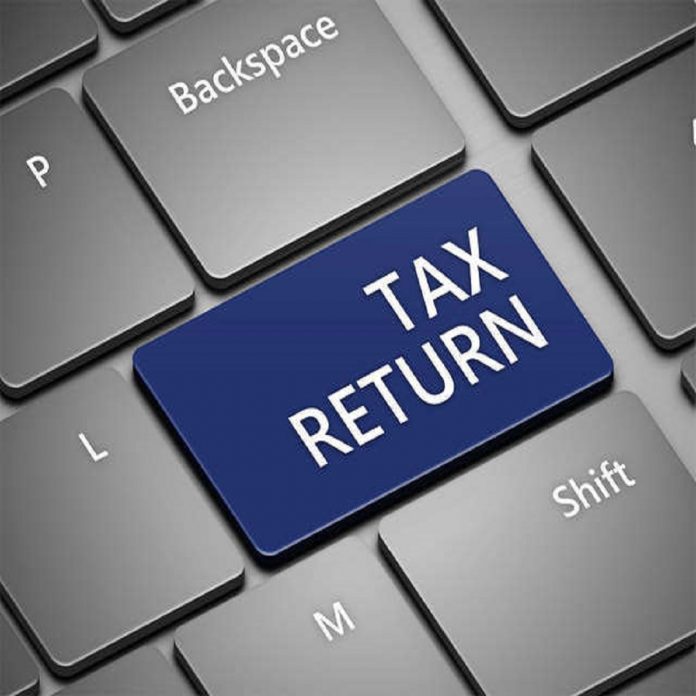Income Tax Deductions: The deadline for filing income tax returns for the fiscal year 2020-21 has been extended from July 31 to September 30, 2021. This two-month moratorium can be used to properly plan your taxes. We’ll go over certain tax deductions that you can take advantage of on your investments, profits, and other sorts of payments. This tax deduction is not applicable under the new tax system.
1. Interest on a home loan is tax-deductible.
Section 24(b) of the Income Tax Code allows you to deduct the interest you pay on a home loan. According to the Income Tax Act, you can deduct up to 2 lakhs in interest payments from your taxable income. Only if the property itself is occupied will this tax exemption be accessible.
2. Claim the Home Loan Principal Amount
On the principal payment of your house loan, you can get a tax break under section 80C. This limit, however, cannot exceed 1.5 lakhs. So, if your remaining deductions under 80C are less than 1.5 lakhs, you can deduct the difference from the principal amount of your home loan to claim a tax reduction.
3. LIC premiums, PF, PPF, and Pension Plan
Under Section 80C of the Internal Revenue Code, you are entitled to all tax exemptions. For example, if you have Life Insurance Corporation (LIC) insurance, you can recover the premium. The principle of a provident fund, a PPF, children’s tuition fees, a national savings certificate, and a home loan are all eligible for tax exemption under Section 80C. You can claim a tax exemption if you bought an annuity plan (pension plan) from LIC or another insurance firm under section 80CCC. You can claim it if you purchased a Central Government pension system under section 80 CCD (1). Keep in mind that the total amount of tax exemption cannot exceed Rs 1.5 lakh.
4. The Pension Scheme of the Central Government
If you invest in the central government’s National Payment System (NPS) pension system, you will be eligible for an additional exemption of Rs 50,000 under section 80 CCD (1B). This exemption is in addition to the Rs 1.5 lakh tax relief available under section 80. (C). Section 80 CCD2 allows you to claim your employer’s contribution to the Central Government’s pension fund. It is subject to two conditions. First, the deduction limit is 10% of the pay, regardless of whether the employer is a public sector unit (PSU), state government, or any other. The deduction ceiling is 14 percent of the payment if the employer is the federal government.
5. The Cost of Health Insurance
If you have a health insurance policy or have a regular health examination, you can deduct the premiums paid under section 80D. Despite the fact that it has a set limit.
You can claim a premium of up to Rs 25,000 if you have purchased health insurance coverage for yourself, your spouse, your children, and your parents. In this scenario, the parents are under the age of 60. The tax exemption ceiling is Rs 50000 if your parents are senior citizens. A health checkup of Rs 5000 is also included. The tax deduction, however, cannot exceed the cost of health insurance.
6. Medical and maintenance costs for dependents who are disabled
Expenses for the treatment and upkeep of disabled dependents are eligible for reimbursement. In a given year, you can claim up to Rs75000. Medical expenditures can be claimed as a tax deduction of Rs 1.25 lakh if the dependant individual has a handicap of 80% or more.
7. Medical treatment payments are exempt from taxation.
Section 80 DD (1B) of the Income Tax Act allows a deduction of up to Rs 40,000 for treatment of a specific ailment of oneself or a dependent.
If the individual is a senior citizen, the maximum is raised to Rs 1 lakh.
8. Education Loan Interest is Tax-Exempt
There is no limit to the amount of money you can save by deducting your education loan interest from your taxes. The tax claim begins the same year as the loan repayment begins. Its benefit will last for the next seven years. That is, you can get a total of 8 years of tax relief. A tax exemption is provided on two children’s education loans taken up at the same time. If a loan of Rs 25-25 lakhs is acquired with a 10% interest rate for two children, a yearly interest payment of Rs 5 lakh will be required on a total of Rs 50 lakhs. This full sum will be exempt from taxation.
9. Loan Against Electric Vehicle
If you take out a loan to buy an electric vehicle, you can get a tax break of up to Rs 1.5 lakh on the interest you pay under Section 80EEB of the Income Tax Act. This tax break, however, will only be available for loans accepted between April 1, 2019, and March 31, 2023.
10. Rent allowance
You can claim house rent paid under section 80GG if HRA is not included in your income. Yes, you cannot claim dwelling rent under 80 GG if your work provides HRA.



